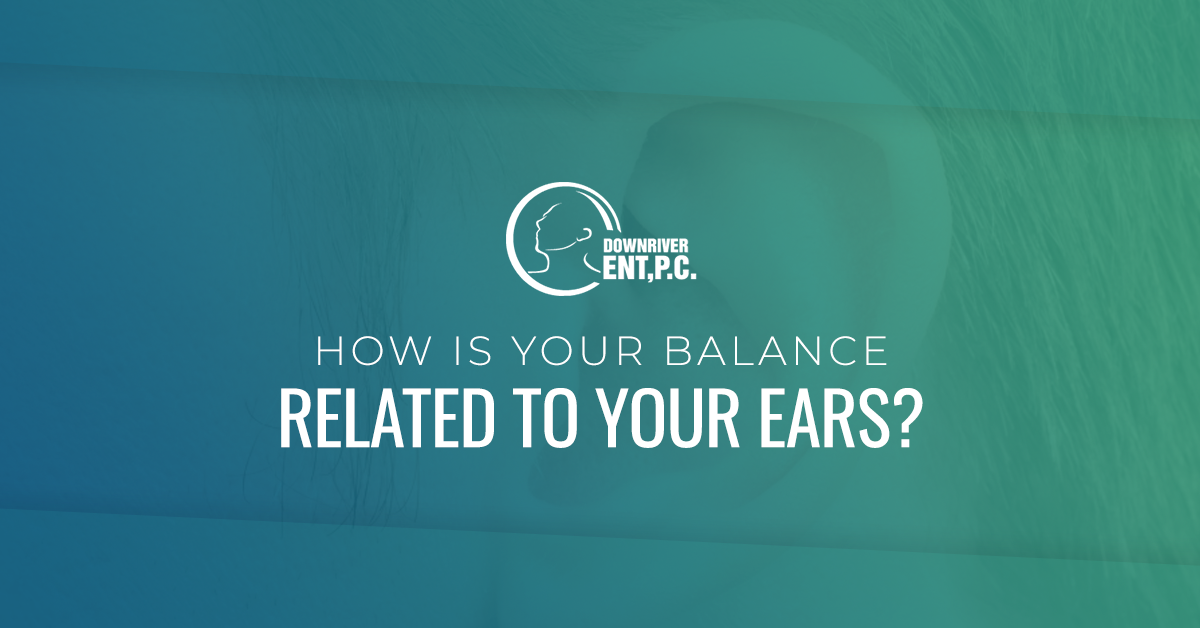How is Your Balance Related to Your Ears?


Many of the patients we see at Downriver ENT, P.C. are surprised to learn their poor balance is related to their ears. If you have a problem with balance, you may be dizzy, unsteady on your feet, and feel as if you’re moving, spinning or floating.
To have normal balance, many of your body systems must work normally including your muscles, joints, bones, vision and inner ears. To better explain how your balance is related to your ears, here is an easy to understand explanation we think will help!
The Inner Ear Helps Us Keep Our Balance
While there are three main parts of the ear, the outer, middle and inner ear, it is the innermost part of the ear that helps us maintain balance and equilibrium. The inner ear contains the vestibular organs and the semicircular canals, which play a direct role in maintaining balance. The semicircular and vestibular organs contain fluid. When your head changes position, this fluid moves, putting pressure on the fine hairs in your ears. These hairs are responsible for sending signals to your brain, indicating that your body is changing position.
Problems with the Ears Can Lead to Problems With Balance
Any ear disorder, infection or inflammation can interfere with the ear’s ability to detect a change and signal the brain. If you have allergies, a cold, the flu or a sinus infection, your inner ear can be affected, leading to problems with your balance and hearing. Increased fluid production and the resulting increase in pressure can alter the information gathered by the tiny hairs in the inner ear, leading to unexpected balance problems. These changes in the inner ear affect your body’s ability to make automatic, subconscious adjustments that keep you on steady your feet.
What to Do if You’re Having Balance Issues
You should visit an ear, nose, and throat specialist like Dr. Lascelles Pinnock if you’re experiencing balance problems for a proper diagnosis. Be specific when describing your symptoms including how, when and where you experience dizziness as this will help your doctor decide what treatment to provide you with. The treatment you will receive will depend upon many factors including your symptoms, medical history, general health and the results of any medical tests your doctor orders.
Schedule a Visit with Your Dearborn ENT Doctor
Poor balance and ear disorder symptoms should never be ignored. If you suspect your poor balance is related to a problem with your ears, we encourage you to schedule an appointment with us today! We provide all the ENT services you need, whether you’re looking for an allergy test in Detroit or need a Dearborn ENT for allergy management and treatment. Simply contact us today to get the help you need!


